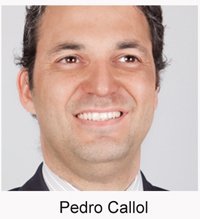Encouraging private and State competition enforcement – Vieira de Almeida
An inability, or lack of willingness, by national regulators to enforce competition rules is prompting the European Commission and private parties to step in
Competition work has never been just about pushing deals past the regulator and this has never been more apparent than during the downturn, says Miguel Mendes Pereira, Competition Counsel at Vieira de Almeida & Associados in Lisbon.
M&A activity may have slumped but the scrutiny of corporations and transactions has increased. “There have been fewer than 60 EU merger clearance cases in 2011 but there has been a dramatic uptake in State Aid investigations, and in Portugal at least, an emergence of private damages claims,” he says.
Nuno Ruiz, Head of EU and Competition, adds that State Aid investigations are now a key area of activity but a lack of action from the local competition authority – Autoridade da Concorrência (AdC) – is also leading to a rise in private enforcements. “We have seen a growing number of private actions launched but few have yet reached conclusion,” he says.
The two main challenges facing such claims are that the Commercial Judges have little experience of competition cases and that it can be difficult to establish the actual damages incurred. “The Courts are not used to assessing such damage levels and so we need to encourage a better understanding of competition principles if there is to be a culture of private enforcement, which will come with time,” he says.
Throughout Europe they report however a deepening scrutiny of cases. Indeed, in January the European Commission (EC) demanded that the Hungarian airline Malév pay back over €75m after ruling that loans made to it by the Hungarian Government equated to illegal State Aid.
Mendes Pereira believes that many more companies across Europe, including within Portugal, may yet face similar challenges. “A number of businesses – and not necessarily only `national champions´ – remain afloat thanks to State support which, although not prohibited under local law, could be ruled illegal under European Union law.”











